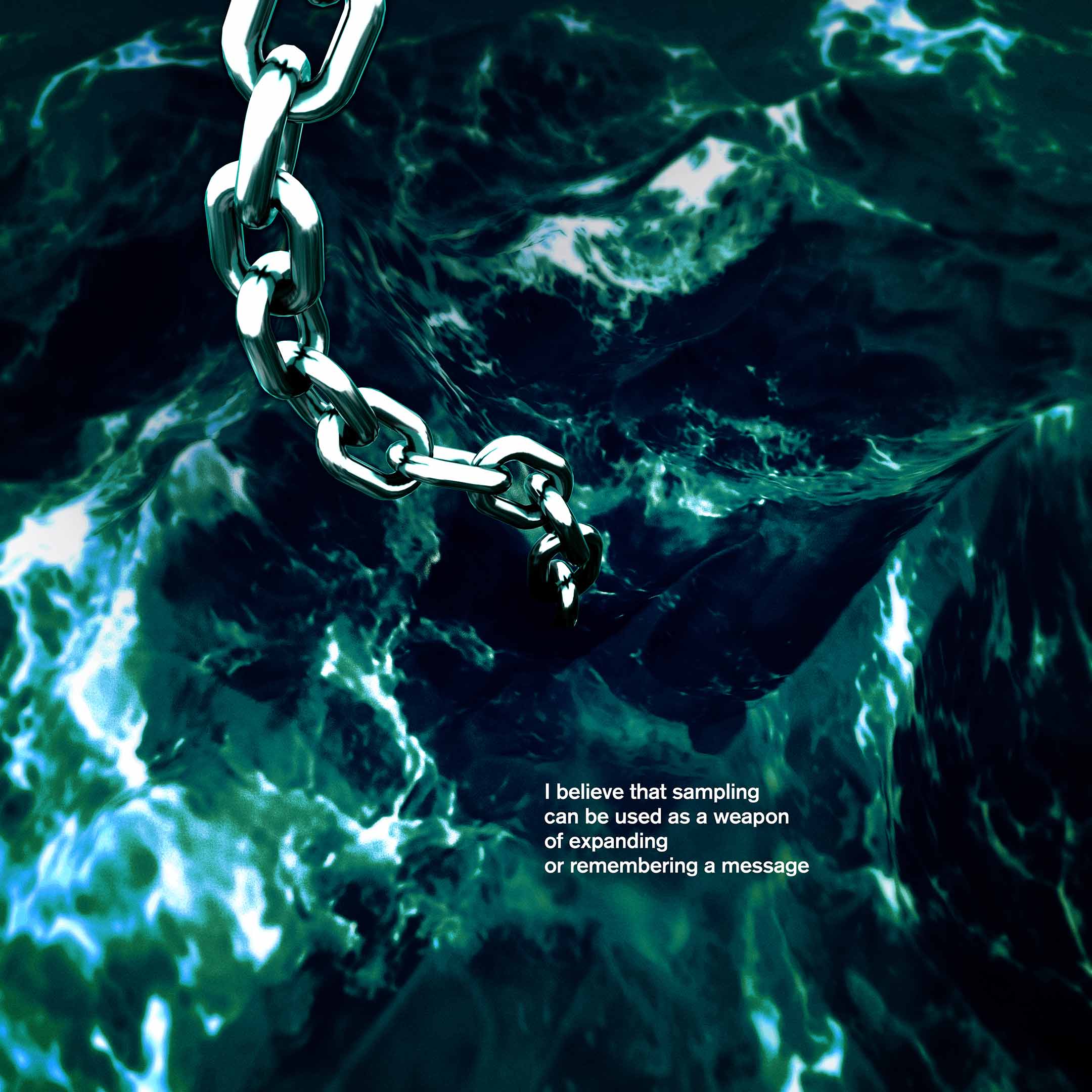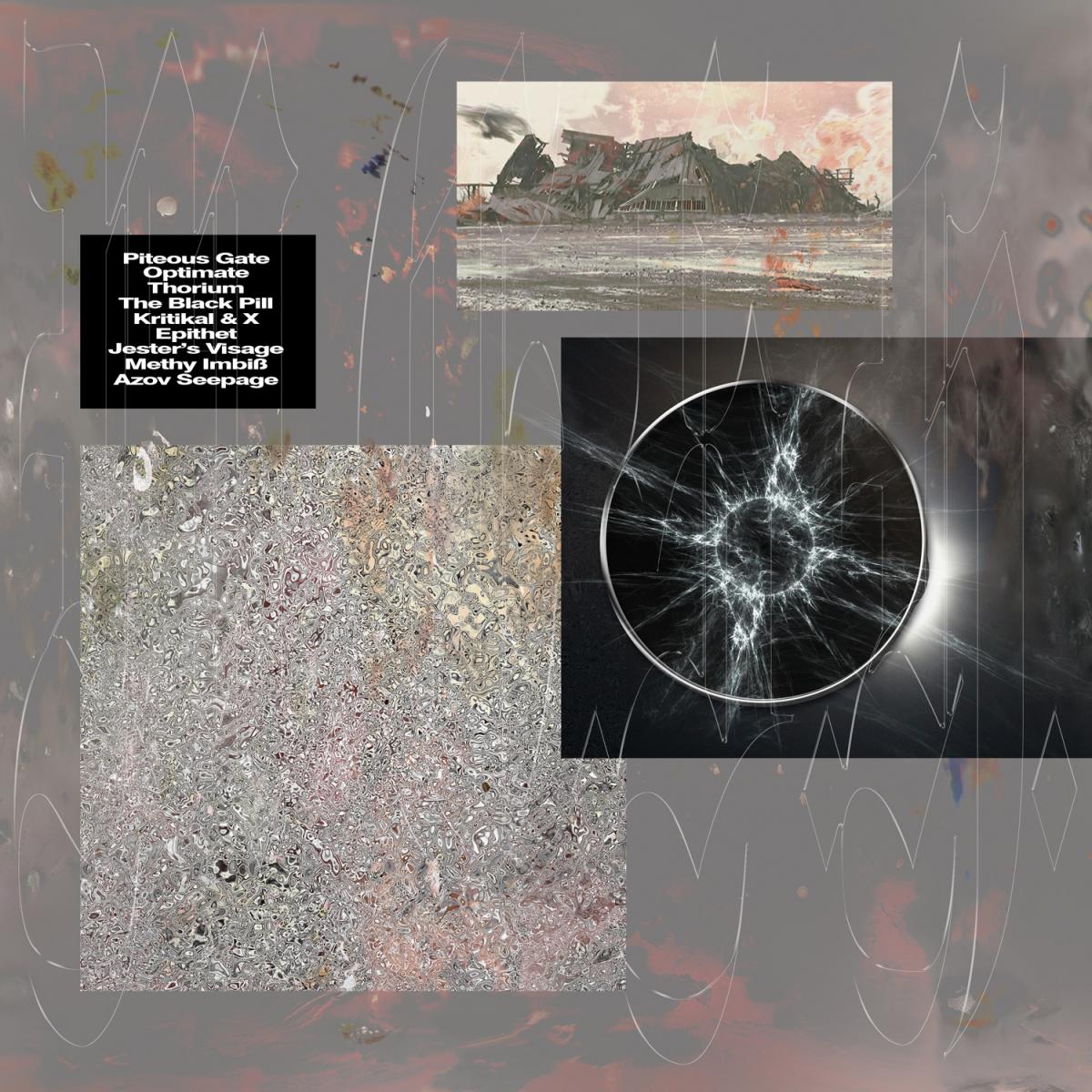
Sampling Stories Vol. 3: Moro
Howling sirens and sharp sound explosions: Listening to «Libres», the heavily sample-based opener of the EP San Benito (NON Worldwide) by Argentine producer Moro, one is easily getting the impression of sampled war sounds with virtual video game aesthetics (see how the sounds have been described elsewhere). Talking with Moro on Skype it became apparent that although there is a deeply political message behind the processed samples, the 2016 track «Libres» is neither about video games nor is he using any war samples. For this «Sampling Stories» sequel we picked out one of the crucial samples of the track to discuss in detail: the sound of chains.
From the Atlantic Slave Trade to the Current Refugee Crisis
What sounds like an explosion or a battleship at the beginning of the track is actually a sample of someone throwing himself into water, Moro tells me. These water samples are repeated all over the track in various edits and are combined with other sampled sounds. For example, listen to the only melodic element in the track, a line of four notes sounding far-off: a one note sample of a ship alarm, compressed and sequenced at different pitches. But let's shed light on another sound: sampled chains. Listen to the plain sample here:
The sound of chains can be heard throughout the whole track, but we will now focus on a certain edit: at 0.30-0.36 and between 1.14 and 2.46. The sound vibrates continuously, but sometimes barely hearable in the background:
When talking to Moro I recognized that this sample is not only crucial for the track, but for San Benito as a whole. He told me about the sample and the EP:
«‹Libres› means ‹free› and the whole EP San Benito is about slavery and the Atlantic slave trade. I was thinking about the actual refugee crisis as well: nowadays all around the world refugees are also using these kinds of ocean boats to move from continent to continent. They are all trying to be free from something by coming to another place but there they might not get the freedom they are looking for. That's what «Libres» is about. When starting to produce the track, I was picturing the two speakers and an image of falling chains came into my mind. I wanted people to look at falling chains when listening to the track. Chains, that represent people who fight for their freedom by putting off the chains they have been manacled with.»
Rhythm as the Track's DNA
Looking for a suitable sample, he was browsing the web and succeeded on a sound library webpage. In order to strengthen the meaning of the sample as an expression of freedom and resistance, Moro edited it and put it into a clave rhythm: «This rhythm has been historically used as a resistance expression, especially here in Argentina and Uruguay», he explained. He used a son clave pattern, the main pattern in Argentine and Uruguayan candombe music. There, it is called «madera».

In his tracks, Moro is consciously trying to avoid the feeling of a simple four-on-the-floor beat. Instead, his beats are fragmented, broken, and heavily syncopated. Rather than establish a steady beat, he lets certain rhythms become guiding elements for both the listener and the dancer. In «Libres», it's the clave rhythm lying behind the track, time and time again (but not predominantly) present through this sample. On a meta level, this strong emphasis on rhythm is linked with the EP's subject: «The slaves back then brought these riddims as their DNA with them. What I try to do is reclaiming these rhythms and making them important and visible again. So this five notes rhythm becomes the DNA of my music as well», Moro explains.
Sampling as a Weapon of Expanding a Message
By sampling a simple sound file, downloaded from a sound library, and transformed into a clave rhythm, Moro uses sampling as – in his own words – «a weapon of expanding or remembering a message». And here we are again using war terminology: although he is not using concrete war samples in «Libres», he is obviously using samples as «weapons». It is not violent but a politically engaged way to make a statement, to tell a story.
Cover image above by Chino Amobi
The interview has been conducted via Skype, 25.1.2017. This article has been published in the context of the PhD research on sampling in experimental electronic music by Hannes Liechti. For more info click here.
Biography
Published on February 17, 2017
Last updated on December 19, 2024
Topics
Why does a Kenyan producer of the instrumental style EDM add vocals to his tracks? This topic is about HOW things are done, not WHAT.
About Tunisian rappers risking their life to criticize politics and musicians affirming 21st century misery in order to push it into its dissolution.
Sampling is political: about the use of chicken clucks or bomb sounds in current music.
Special
Snap



